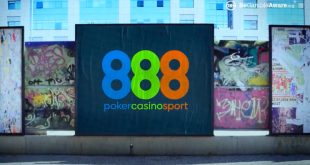
As the European gambling industry consolidates creating sector giants. Scott Longley takes a look at the debt crisis that has engulfed Caesars Entertainment.
If anyone doubts that we are still living with the after effects of the 2008 financial crisis, they need look no further than the travails of one of the more high-profile corporate victims of the appropriately-termed casino capitalism, Caesars Entertainment.
Getting on for eight years after US private equity behemoths TPG and Apollo Global Management finally completed the barely believable $30.7bn buyout of Caesars (then called Harrah’s), the company is still over-laden with debt and struggling in a court battle against hedge fund investors including Canyon Partners, Oaktree Capital Management and Appaloosa Capital to retain solvency.
The fight is over who gets to shoulder the burden of the remaining debt load, with Caesars having split its operation into a myriad of subsidiaries designed to fight off the creditors. As with the famous quote about the Schleswig Holstein question, only three people in the world likely ever understood the complexity of the Caesars corporate structure, and one of those – ex-chief executive Gary Loveman – has subsequently left the company.
The current structure – designed to allow the solvent elements of Caesars to float free from the staggering $18bn debt load – reads less like a flow diagram and more like an Escher drawing.
Caesars Entertainment Corporation (CEC) is the holding company with no independent operations of its own. It owns Caesars Entertainment Resort Properties LLC, which operates six casinos in the U.S and has an interest in Caesars Growth Partners LLC, operator of six casinos in the U.S., primarily in Las Vegas. It also owns 89% of Caesars Entertainment Operating Company which has 19 casinos in the U.S. and nine internationally. Separately, there is Caesars Acquisition which was formed to make an equity investment in Caesars Growth Partners, the joint venture between Caesars Acquisition and Caesars Entertainment.
Got that? The future of the company is now rumbling through the 21st US equivalent of Dickens’ court of Chancery in Chicago, with debt-holders claiming that Caesars has performed a piece of corporate sleight of hand in moving profitable assets into separate vehicles and leaving its debt-holders with the less profitable assets. It’s the kind of legal dispute where the only sympathy lies with the officials of the court who will be forced to wade through the rainforest-worth of official documents.
Yet the miracle with Caesars is that such a complicated corporate structure has managed to do a halfway decent job of allowing parts of the operation to thrive even as the debt load weighs down on the whole like a winged beast.
Most importantly, the company owns the Playtika social casino operation, which confusingly operates under another umbrella – Caesars Interactive – which constitutes Caesars’ online operations and sits within Caesars Entertainment.
Although the company doesn’t break out Playtika figures from the CIE numbers, it is thought that revenues from the business comprise the bulk of CIE net revenues, which in the three months to September rose just over 20% to $195m. Interactive net profits more than doubled to $43m.The company said the increase in revenue and adjusted EBITDA was driven “primarily by strong organic growth in the social and mobile games business due to the continued focus on conversion and monetization”.
The Caesars situation bears some resemblance to another debt-fuelled corporate wheeze closer to home with Gala Coral. While Playtika is a relatively successful social gaming play struggling to break from a dying land-based gaming mothership, Coral always was a successful betting business which – in hindsight – was mistakenly thrown together with the Gala casino and bingo business.
With Dermot Desmond now leading a revolt over the terms of the merger deal with Ladbrokes – one which he believes leaves Ladbrokes shareholders effectively picking up the tab for the debt largesse originally afforded Gala Coral – it shows how much debt is toxic when it comes to these more straightened times.
For Caesars, relief is unlikely to come from the rest of the company’s trading figures. The share price tanked on the day of thee results in early November, falling nearly 10% to $7.75 after revenues came in below expectations at $1.14bn while the company fell to a loss of $791m, affected mainly by the corporate deck-chair repositioning.
Nevertheless, new chief executive Mark Frissora – who took over from Loveman in July this year – spoke positively of the compnay’s prospects. “We remain focused on a balanced agenda of growth and efficiency initiatives to continue to fuel margin expansion and cash flow, supplemented by targeted capital investments to drive higher room rates in the Las Vegas region,” he said in a statement that proves the company hasn’t fully expended its stock of meaningless business phrases.
But whatever Frissora says, the future of Caesars and its relatively successful interactive unit won’t be determined by its trading. It will be the courts which determine the fate of this particular Caesar.









